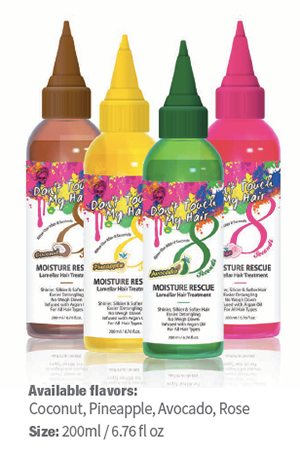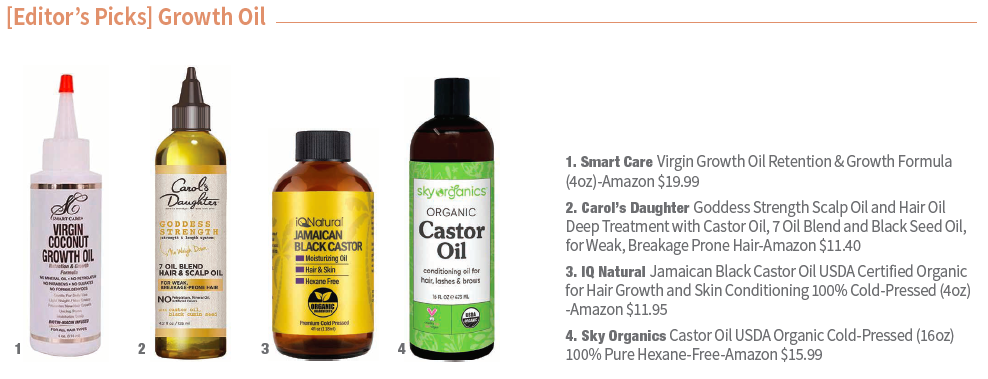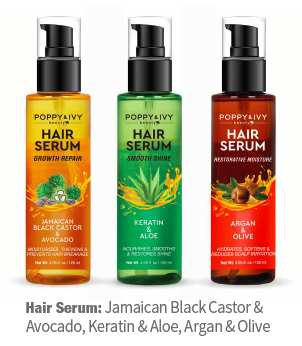Natural Hair Care Products that Take the Place of Relaxers
In the wake of the 2020 Black Lives Matter movement, the wind of the Natural Hair Movement(NHM)is blowing among Black women. In social media, there has been a considerable increase in influencers posting videos containing various secrets about natural hair care. This “hair liberation” act is part of accepting and loving their identity, or so-called “Blackness”. So how can black women keep their innately delicate hair healthy? The August issue of the BNB Cover Story summarizes the management of black women’s hair, which can be crumbly, thin, and difficult to grow.
Natural Hair Movement Blowing Again
The afro hair texture of black people evolved very thin and twisted. It has little moisture, it is loose and weak, so it is easy to get damaged and break. That is why black women with kinky afro hair textures find it very difficult to grow their hair long. It requires very special and meticulous care.
In order to match the universal feminine beauty of the East and West, “soft, shiny long hair,” many black women try to straighten their hair using hot combs, hot irons, etc., or using a hair relaxer with a harsh chemical composition. This is also because curly afro hair textures have become common in the United States, but there is still social prejudice and discrimination against them. However, the method of forcing their hair to stretch using tools or chemicals injures the hair, causes dermatitis on the scalp, and eventually results in serious side effects such as permanent alopecia.
In response, many black women shout “Let’s love and protect our identity as it is,” accepting their natural curly, rough-looking afro hair texture. Michelle Obama, who always wore straight hair when she was first lady, has recently frequently revealed her curly hair.
The film “Love Hair” won the Academy Award for Short Animation at the 2000 Academy Awards. The film depicts the arduous journey of an African American father managing his daughter’s tangled curly hair. The film is in the limelight on Youtube, where it currently has over 72 million views.
The move to break discrimination and prejudice against black curly hair is causing several states to enact hair anti-discrimination laws. The CROWN Act(Creating a Respectful and Open World for Natural Hair), is a bill that prohibits discrimination against hair by race. This is a bill that prohibits discriminating between the opportunity to work and the opportunity to be educated, especially on the grounds of black people’s kinky afro hair textures or hairstyles such as braid, locs, twist, and bantu. Currently, the law has been passed in 13 states in the east and west of the United States, including California and New York.
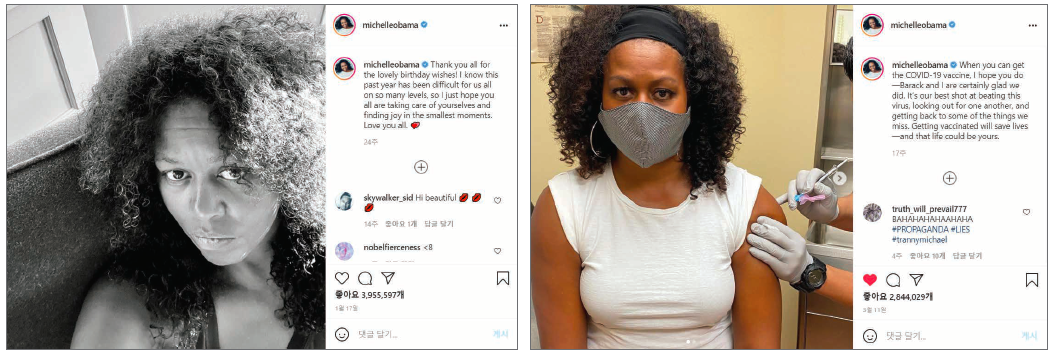
Michel Obama, who often shows her curly hair on Instagram (Source: michelleobama@instagram)
Why is Black Hair Thin and Curly?
According to Clarence Robin’s book <Chemical and Physical Behavior of Human Hair>, black people’s curly and kinky hair evolved to suit the natural environment of Africa. Because the sun is so hot in Africa, their hair has gradually evolved to be dry, thin, and well-broken to reduce water emissions in their bodies. In addition, curly hair is airy compared to straight hair, so it is advantageous to lower body temperature and evaporate sweat quickly.
.
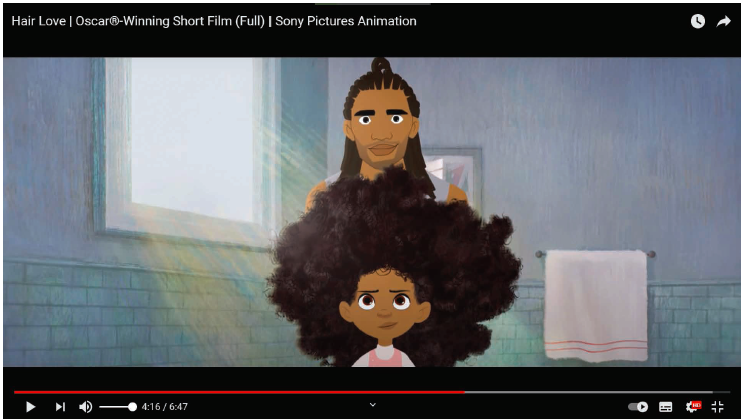
< Source: YouTube> A scene from the 2000 Academy Award-winning film “Love Hair”
How to Care for Natural African Black Hair
Many would like to follow the movement of “Let’s love natural hair,” but it’s not easy for African American woman to grow her hair healthy. Then, how can one correctly care for their delicate hair? There are many things to look for the right hair care for African American women, but here we have compiled nine key points and recommended the products needed.
1. Water, water, water!
For smooth and shiny hair, African American women should keep close with water. One should drink a lot of water and often sprinkle it on the head.
In order to grow afro hair healthy, it is essential to keep moisture in the hair. Experts advise Black women to ‘drink about 2,000 cc of water a day’. The more water you drink, the more moisture your hair can get.
Black hair is prone to tangle because it is curly. Tangling makes hair more easily damaged and broken. So one should detangle it often. They usually use a comb to detangle their hair, but their hair gets stuck in the comb, causing headaches, and the hair break and fall out a lot. To reduce such side effects, detangling hair while wet is good. The easiest way is to spray the hair with a spray bottle.
2.‘Pre-Poo’ Routine is a Must
How often should African American women wash their hair? Black hair experts mostly advise shampooing at intervals of 7-10 days. Sometimes it is recommended to wash once a month. If one washes their hair too often, not only does dust or grime fall out, but the moisture and oil in the air fall out as well.
That’s why Black women are familiar with the concept of ‘pre-poo’. It is short for ‘pre-shampooing’- a process that must be followed before shampooing. If one washes their hair, the hair can become drier and damage can occur, and pre-poo is a preventive measure against it.
Benefits of Pre-Poo
- Adds moisture to dry hair
- Promote soft and shiny hair
- Making Detangling Easy
- Increase the effect of conditioner, make hair stronger and reduce tangles
How to Pre-Poo
Divide the hair into 4-8 sections and apply the pre-poo product evenly throughout the hair from the hair root to the ends. Apply pre-poo product and wash your hair after at least 30 minutes. Of course, if you apply pre-poo and wash hair after a longer time, the effect will be doubled. After applying pre-poo, it is most ideal to wrap your hair in a scarf or bonnet, keep it overnight and then wash it the next morning.
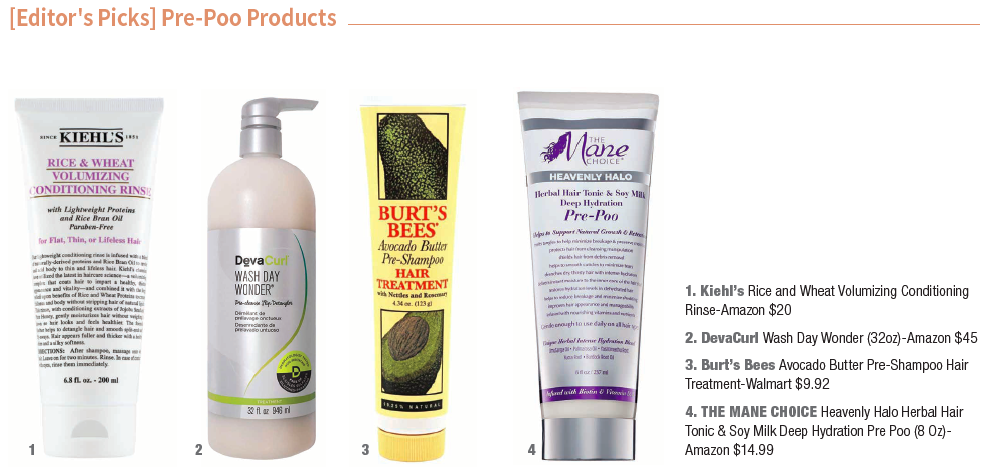
3. No-poo! Co-Wash is the Trend!!
Co-Wash is short for ’Conditioner Only Wash’. You literally wash your scalp and hair with conditioner only, so “no-poo.” It has been accepted as an innovative hair care method by Hollywood for quite some time. Why does one have to throw away shampoo and clean their hair with conditioner only? First, the surfactant component of the shampoo can wash away more oil than necessary, making the scalp and hair dry. The second is that you can remove unnecessary oil from the scalp and hair to a certain extent with only conditioner. The advantage of co-wash is that it maximizes the hair conditioning effect. This is a very beneficial method for the loose, curly and well-tangled hair of black people.
The way to co-wash is simple. After moistening the scalp and hair thoroughly with lukewarm water, apply the co-wash product on your hands and apply evenly to the scalp and hair. Then gently massage every corner of the scalp using the tips of your fingers. Gently rub your hair from the roots to the ends so that it could absorb the conditioner, leave it for 2-3 minutes, and rinse thoroughly with lukewarm water. If a customer cares about natural hair care, let’s actively recommend co-wash products instead of shampoos.
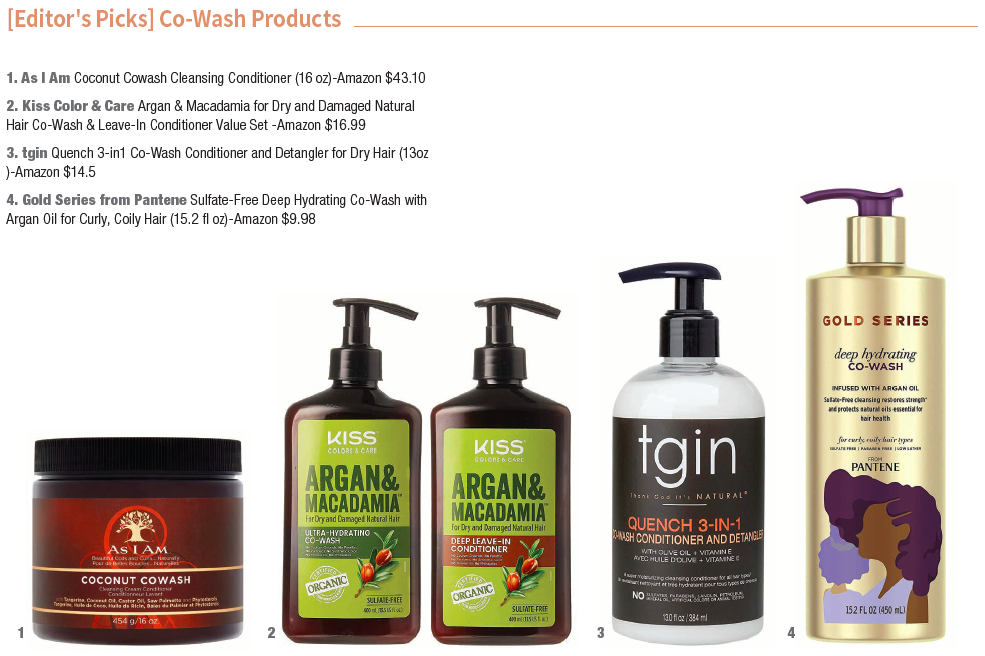
4. Use of Sulfuric Acid-Free Shampoo
If one cannot avoid using shampoo, they should use sulfate-free shampoo. Many shampoos contain chemicals such as ammonium lauryl sulfate, ammonium laureth sulfate, or sodium lauryl sulfate. They remove too much oil from the hair, causing dryness and breakage. It is better to use sulfate-free shampoos and conditioners, which provide more moisture to the hair and at the same time is less irritating to the scalp. Instead of sulfuric acid shampoo, black soap made from natural materials can also be an alternative.

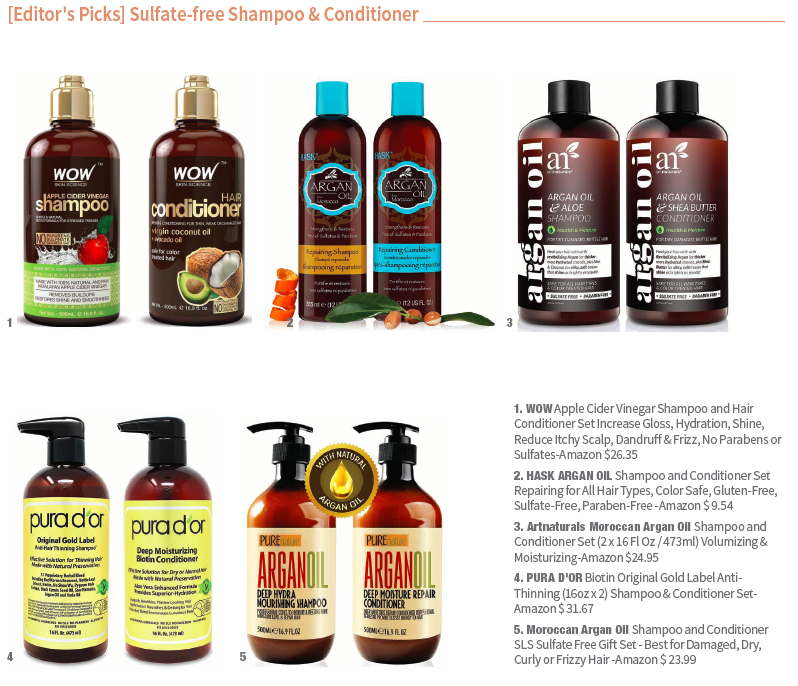
5. Moisturizing Routine
Moisturizing Afro Hair is paramount. Kinky hair tends to dry quickly and lose moisture easily, so it needs to be hydrated continuously. Always use hydrating milk, hair cream or hair oil before styling your hair. For protective styles such as braiding or twisting, conditioning products should be used to the maximum to keep hair moisturized well.
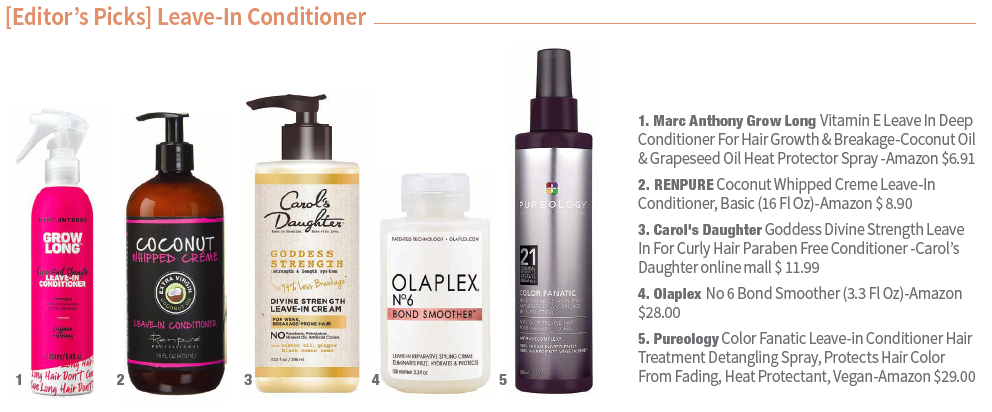
6. Hair should be Oiled Frequently
Afro-textured hair needs a lot of oil. For African American women, oil should be a part of life. Oils play an important role in keeping natural hair healthy. Oil moisturizes the hair, or seals and protects the moisture that is already present.
For oils that are absorbed by the hair and moisturize the hair, coconut oil, olive oil or avocado oil has excellent effects. Oils are good to use after applying leave-in conditioner. Jamaican black Castor oil, grape seed oil or jojoba oil are excellent for sealing and maintaining hair moisture.
7. Protective Style is Crucial
If you have cleaned and oiled your hair, you should now do styling. Without styling, hair is easily damaged. Styling is generally accepted as an aesthetic dimension, but for Black women, it also has a strong functional dimension to protect their hair. This is why the act of Black women braiding their hair or wearing wigs is called ‘protective styling’. Styling hair in lumps, such as braiding, Locs, Twist, Bantu, etc. will cause less hair damage than leaving them as it is. This is because the hair is twisted like a rope and becomes more durable. Also, the problem of hair tangling is eliminated. However, pulling too strongly on the hair roots when styling should be avoided. Wearing a wig is also a kind of protective style. By wearing a wig, it prevents exposure to harmful external stimuli such as ultraviolet rays, dust, and wind that damage the hair and scalp.
8. Wear a Satin Scarf or Bonnet when Sleeping
It is recommended to go to bed wearing a satin scarf or bonnet. Satin scarves and bonnets prevent hair from tangling or breaking while sleeping. It is better to use soft silk or satin for pillows also. If one sleeps directly on a cotton pillowcase, it is easy to damage the hair, as it will cause drying and breaking due to friction with the cotton. Silk or satin pillowcases are much softer on the hair and help maintain moisture in the hair.
9. Detangling and trimming
Tangled hair breaks easily. When hair gets tangled, you have to detangle it right away. It is better to use a brush or comb made specifically for detangling. When detangling, start at the tip of the hair and move gradually upwards towards the hair roots and be careful. Also, one should not neglect split hair ends. If left unattended, it will gradually split to the roots of the hair. The split ends should be trimmed regularly, at least once every two weeks.
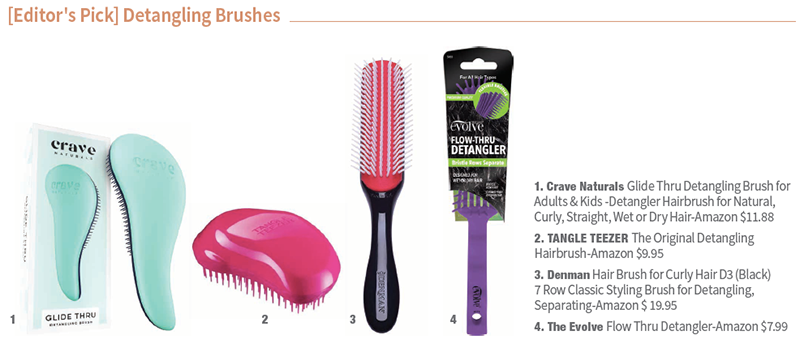
<BNB’s Special Picks for Natural Hair Care>
1. Absolute NY’s Hair Serum
- CRUELTY-FREE / VEGAN / PARABENS-FREE / SULFATES-FREE/ PHTHALATES-FREE, ARTIFICIAL COLOR-FREE Product that minimized harmful chemical components.
- Completely prevents moisture evaporation after shampooing with Oil Shield.
- Natural ingredients effective for Hair (Castor oil, aloe, keratin, avocado, argan, olive, Camellia oil, jojoba, coconut, etc.)
- Can be used for both wet and dry hair
- Not a difficult-to-use one-touch cap, but an easy, pump type product
- Oily when pumped, but absorbs quickly without stickiness, fresh and clean
- Soft texture and fragrant scent
2. Don’t Touch My Hair’s Moisture Rescue-8 Second Lamellar Hair Treatment
- Rinse-out hair treatment helps restore damaged hair.
- Effective for processed hair, such as dyed/bleached hair.
- Lamellar treatment puts a thin layer only on the damaged area of the head, which is lamellar.
- The treatment layer fills the damaged parts of the hair and holes, etc., and seals it to smooth the surface of the hair. Because the treatment only penetrates into the damaged area, it does not make undamaged hair over-conditioned, making it more effective.
- There is no over-conditioning, so the treatment does not make the hair heavy and does not offset the volume.
<How to use> Use shampoo on wet hair. When first applying it to hair, it feels a little warm, which is a natural phenomenon and means that it is working with hair and treatments. After putting it on hair, massage lightly to form bubbles, then let it stay for 8 seconds or longer depending on your preference and rinse off with water. Depending on the user’s preference, one can additionally use the conditioner after.
It is a quick & easy daily haircare product that is suitable for busy modern people in that it can produce effective results in a short time of 8 seconds.
